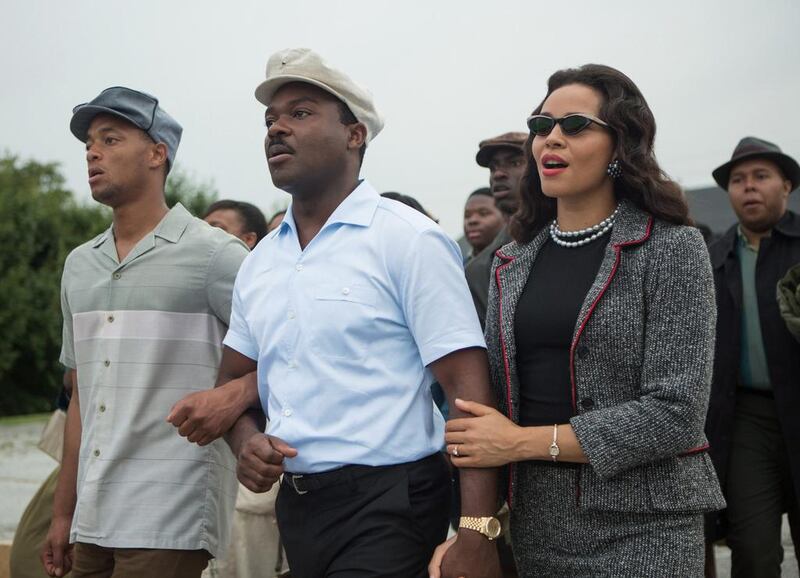My children have gone to British-curriculum schools for the past three years and for the most part their experiences have been quite positive, although Britishisms have started creeping in: now they need “boots for football” instead of “cleats for soccer”, and they look for “the bin” instead of the garbage can.
What hasn’t been happening, however, is any instruction in US history, or at least not much. I suspect curriculum designers are still bitter about that whole American Revolution thing.
As my children get older, the gaps in their knowledge of American history have become more pronounced. Because I don’t have the time or inclination for home schooling, I was delighted when I found out that Selma was coming to Abu Dhabi. We would see the film as a family, I decided, which would give us a way to talk about both the Civil Rights era and about contemporary issues, such as what happened in Ferguson, Missouri, last summer.
In the aftermath of Ferguson, my children felt hopeless about the state of racial and economic politics in the United States. They were not alone in this feeling, of course, or in their sense of frustration about how, or if, anything would ever change for the better. I thought that Selma might offer them some context for contemporary events and perhaps even some hope that change is possible.
The movie dramatises what happened in Selma, in 1965, when civil rights activists decided to spotlight the egregious injustices suffered by African Americans who wanted to register to vote. These would-be voters were routinely turned away for any number of trumped-up reasons (asked to list all the counties in Alabama in alphabetical order) or because they couldn’t afford the (illegal) poll tax. Wanting to draw national attention to this issue, Martin Luther King Jr and others planned a march along the 54-mile state highway from Selma to the state courthouse in Montgomery. Twice the protesters’ efforts to cross the Edmund Pettus Bridge outside Selma were met with terrible violence – tacitly condoned by Alabama governor, George Wallace – but the third time, under the auspices of a federal court order, the marchers were allowed to proceed.
Full of ideas about how this movie would help our children understand an essential piece of civil rights history, my husband and I took them to the cinema, only to be told that no one under 15 was allowed into the show. I suppose the movie’s moments of brutality might be too much for some children, but unlike so many other movies, this film doesn’t glorify violence.
Instead it illustrates the difficulty and power of nonviolent resistance, a stance that was central to the protests.
Through the magic of the internet and a relative in the film industry, we wrangled a “screener” of the movie and watched it at home, which had the effect of making the events seem as if they were unfolding in real time. “Did that really happen?” asked my 10-year-old son about the movie’s opening scene, the Birmingham church bombing that killed four young girls, none of them more than 14 years old.
Yes, it really happened – along with the murders of several protesters, and the use of fire hoses, dogs, and tear gas on unarmed protesters. The ugliness of these scenes was hard to watch, but in that pain is value: without an honest assessment of its flaws, how can any society hope to move forward?
Watching Selma hasn’t miraculously filled in the gaps in my children’s understanding of US history but in dramatising one of the tensions that has bedevilled US society for centuries, the film offered us all some powerful history lessons.
Deborah Lindsay Williams is a professor of literature at NYU Abu Dhabi. She is the author of The Time Locket, a novel that she wrote as Deborah Quinn





